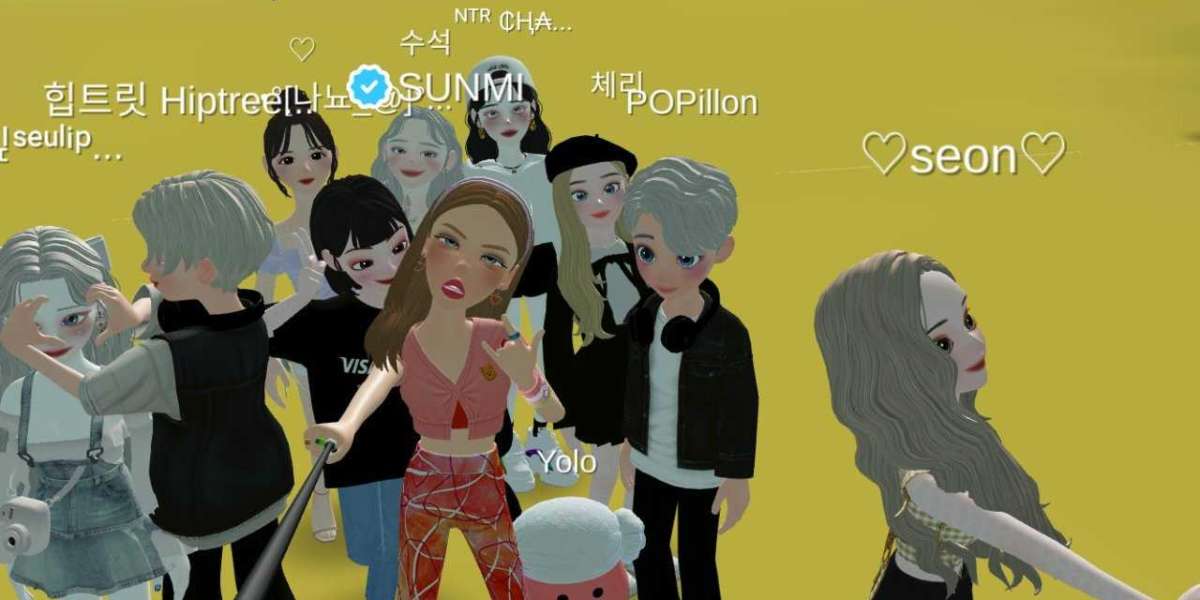The metaverse, which is regarded as a technology whose emergence was considered to be opportune during the pandemic era, has solidified its position as a key avenue for elevating cultural experiences to a higher level of sophistication.
Even as the coronavirus and a variety of its variants changed the way people interacted, the virtual world-centered metaverse emerged as a notable alternative, offering a similar experience to face–to–face encounters. While pre-pandemic cultural contents were based on face–to–face experience, the virtual world–centered metaverse emerged as a notable alternative, offering an experience that is similar to face–to–face encounters.
Thanks to technological advancements such as graphics technology, network services, and smartphones, the digital universe have won the hearts of millennials and Generation Z — people born between the 1980s and the 2010s — and has risen to the status of a mainstream cultural phenomenon.
Attractions have been relocated to the metaverse.
In the eyes of the Korea Tourism Organization, metaverse marketing is no longer an option, but rather a necessity in the promotion of domestic tourism in Korea.
Korean metaverse platform Zepeto, created by IT behemoth Naver, has reached a milestone of 200 million accumulated users, with the majority (80%) of them being in their teens and early twenties. According to Naver, the majority of the users were from other countries, accounting for 90 percent of the total.
Global metaverse giant Roblox had over 47.3 million daily users in the third quarter of 2021, according to analytics firm Statista. Roblox is headquartered in the United States. In fact, according to the data tracker, nearly half of its users are under the age of thirteen.
As a result of the rapidly increasing popularity of digital technology among the younger generation, the Korea Tourism Organization (KTO) has introduced a new map showcasing the distinct charms of five Korean cities: Busan, Mokpo in South Jeolla Province, Andong in North Gyeongsang Province, Gangneung in Gangwon Province, and Jeonju in North Jeolla Province.
Famous landmarks and tourist attractions, including the Gwangan Grand Bridge and Gamcheon Culture Village in Busan, the UNESCO World Heritage Site Dosan Seowon (also known as the Korean Neo-Confucian academy) in Andong, the famous coffee street at Anmok Beach in Gangneung, and others, were made available for Zepeto users to explore digitally under the theme of "K-treasure city."
Meanwhile, the organization created its own "Squid Game in Gangneung, Korea," which was hosted on the Roblox metaverse gaming platform. There, the avatars of the users can participate in popular Korean games, take photographs of the city's tourist attractions, and sample local delicacies such as rice cake and soft tofu ice cream.
To date, the game has been played by more than 70,000 people.
"The millennials and Generation Z are at the forefront of the global tourism trend. According to the Korea Tourism Organization's Executive Director Zhu Sang-yong, "the use of a metaverse marketing strategy will not only help to promote a positive image of South Korean tourism, but it will also lay the groundwork for the country's tourism industry to grow in both quantity and quality."
Virtual tourism is not a concept that is only appreciated by visitors from other countries.
South Korea's largest convenience store operator opened South Korea's first metaverse convenience store, the CU Zepeto Han River branch, in August, attracting the attention of local Zepeto users who were eager to try a new way of spending time with their friends that did not require them to wear masks.
"I saw a lot of celebrities sitting on benches at Han River parks eating instant ramen and kimbap." "It was really cool to be able to do that with my friends in Zepeto," a middle school student from Changwon, South Gyeongsang Province, named Park, told The Korea Herald on December 18.
In addition, "Eating ramen in Zepeto was a unique experience for me because I have never been to Seoul before," Park said.
Increasing the quality of the K-pop experience
As more and more entertainment companies began offering real metaverse experiences to fans, the metaverse has been credited with elevating K-global pop's popularity to an even higher level.
The metaverse concert, which was first introduced to the public by American hip-hop musician Travis Scott's Fortnite concert, is no longer a novel concept to music fans.
In Korea, the Ministry of Culture, Sports, and Tourism hosted a metaverse concert, K-Vibe Festa, in early December, featuring performances by diva BoA, girl group aespa, rapper Wonstein, and other artists.
In addition, on December 27, Korean hip-hop icons Tiger JK and Yoon Mi-rae, as well as rapper Bizzy and singer BiBi, successfully launched their own metaverse concert through Cryptovoxels.
In an effort to improve the cultural experience of K-pop fans, entertainment companies are collaborating with the game industry to showcase artists' newly released albums while also hosting dance challenges and fan meetings in the gaming environment.
Sunmi, a singer, made a triumphant return to the stage in July, thanks to the Zepeto platform.
She performed her signature dance moves and performed a surprise release of the title song "You Can't Sit with Us" as background music in the digital world as part of the event.
A chance to win a signed album as well as digital coins to spend on the outfits worn by the artist in her new music video was also offered to participants who discovered nine previously unreleased photos of Sunmi for her upcoming album in the metaverse.
"A large number of fans enjoyed the metaverse event because they were able to participate actively, as opposed to simply watching it on television." An official from Sunmi's label Abyss Co. told The Korea Herald on Friday that the metaverse "helped to quench the fans' thirst to form a bond with their beloved artist" at a time when artists and fans have few opportunities to communicate and meet in person.
The ever-expanding concept of the metaverse is not limited to the tourism and music industries but encompasses a wide range of industries. Various services based on the metaverse open up a window of opportunity for the development of a new cultural genre in the near future.
It is possible that Zepeto dramas, a series created using stop motion images and clips of Zepeto avatars, will become the next big thing after webtoons, a type of digital comic that originated in South Korea.
All of the projects, which range from horror to high school romance, are uploaded to YouTube, where they garner millions of subscribers and views, just like any other video on the internet.
"I believe you should make your television directorial or screenwriting debut for a local broadcaster," a netizen said in response to a Zepeto drama that was posted on YouTube.
"There are two different ways in which we can promote our metaverse platform Zepeto. Collaborations with global companies, such as Christian Dior and Samsung, can serve as excellent examples of the 'out to in' strategy when implemented. However, the 'in and out' strategy necessitates the participation of actual Zepeto users in the promotion of the metaverse concept outside of the virtual world. As more and more Generation Z users become involved in the metaverse, this effort is slowly taking shape. On Thursday, a Naver official confirmed to The Korea Herald that the Zepeto drama is one of those things.
In the world of Zepeto drama production and writing, avatars, and Zepeto designers are becoming household names. Despite the fact that people of the older generation may have a difficult time comprehending this change, it is undeniably taking place," the official continued.
"It's possible that the metaverse industrial age has arrived even before we realize it. "The metaverse is the new generation's playground," he said, evoking the example of Cyworld, Korea's pioneering social website with a 2D avatar that launched in the early 2000s.


